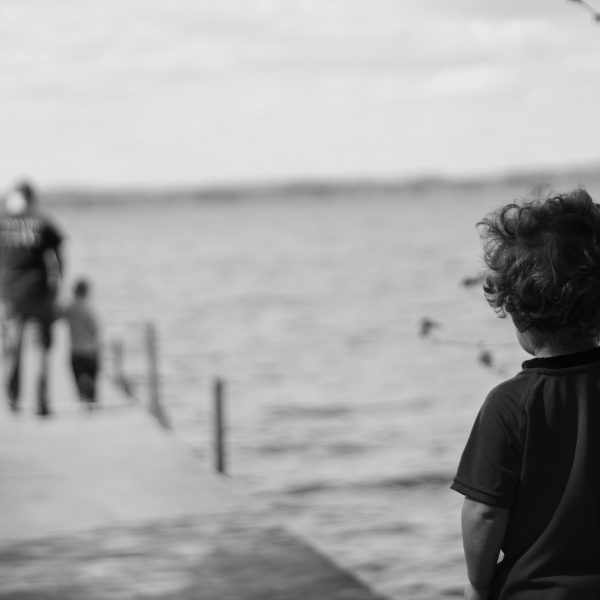Support needed for children and young people living in residential care, report finds

The Sentencing Advisory Council’s latest report ‘Crossover Kids: Vulnerable children in the Youth Justice System’ highlights the need for a better approach to ensuring children in state care are safe, and are supported to stay out of the criminal justice system.
As well as highlighting opportunities for decision makers to create more supportive pathways, policies and procedures for children in the care of the state, the report has shared a variety of stories from children and young people who have grown up in residential care. One such story belongs to Anna, who has chosen to study early childhood education, in the hopes of working with children with a similar lived experience to her.
The report shows children and young people, placed in state care for their safety and protection, are at a much greater risk of ending up in the criminal justice system, often for minor infractions which, if they occurred within a family home, would be insignificant and of little consequence to a child’s life path.
Olivia Greenwell, Strategy Manager for Family Youth and Children’s Law at Victoria Legal Aid says, ‘We’re seeing highly vulnerable young people who have experienced significant trauma, mistreatment or neglect ending up in the criminal justice system when what they most need is safety, care and protection’.
‘In residential care homes children and young people are being charged for minor offences, like throwing a sponge at the neighbour’s car, a police response we would not typically see for young people in a family home’.
Ms Greenwell noted that many times, children and young people who find themselves in residential care can sometimes behave badly due to their experiences of trauma or abuse and frustrations at living in care away from family.
‘With so many kids in the youth justice system having spent time in child protection services, it’s clear they’re not getting the support they need to overcome disadvantage and go on to lead happy and productive lives,’ she said.
Anna (not her real name) is an Aboriginal woman from regional Victoria, who went into kinship care at 11 weeks old.
Shortly after her 11th birthday she was taken away from her kinship care placement and placed into residential care. Within the first four days Anna was moved three times. ‘I have no idea why they moved me so much. In the next four years, I was moved over 35 times from one town to another and all over the place. I never unpacked my bags in the end because I didn’t know when I would move again’, she said.
As a result of the frequent moves, Anna lost contact with her family for some time. She describes being in residential care as ‘the worst time in my life…It’s meant to be like a home and a sort of family for you, but there are locks everywhere; to eat you have to ask, in some places you never knew what staff would be on so you’d wake up to someone in the house that you’d never even met before’
On one occasion the police were called to the home because she walked into an office without permission. As a result, Anna now has a criminal record for breaking and entering.
‘Once the police arrived, they’d charge you for every little thing, not just one charge, and it was for stupid stuff. The staff would push for the police to take us (to the station) or charge us and they didn’t care about the repercussions this has afterwards’, Anna said.
Anna’s experience of living in residential care improved in her final placement, when she had the support of permanent staff. ‘It felt like the staff actually wanted to be there and with their help I started to see the light at the end of the tunnel’.
Despite moving so many times,and the challenges posed in dealing with minor criminal charges, Anna was determined to stay in school. She now has one year before she completes her studies in early childhood education.
‘Now that I am an adult it’s way worse. I can’t pass a police check. It’s delayed my career because I need to do placements for my studies and need to pass those checks to get a job in childcare’.
Anna says having minor criminal charges from her past makes it harder to live a productive life.
‘As a child in residential care it feels like all your life you’re judged off a bit of paper instead of who you are as a person, and you think once you’re out of care it will be different. But the jokes on you, because even once you leave then there’s another bit of paper you’re being judged off’.
Popular

Economics
Policy
Provider
Workforce
Prime Minister Albanese backs Tasmanian Labor’s childcare plan, highlights national early learning progress
2025-06-30 10:42:02
by Fiona Alston

Economics
Provider
Quality
Practice
Policy
Workforce
South Australia announces major OSHC sector reforms aimed at boosting quality and access
2025-06-30 09:49:48
by Fiona Alston

Events News
Marketplace
Practice
Provider
Quality
Research
Workforce
How do you build and keep your dream team? ECEC Workforce and Wellbeing Forum tackles the big questions
2025-06-24 15:20:53
by Fiona Alston











